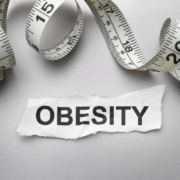By Deborah A. Cohen, MD, MPH
The past few decades have seen dramatic changes in the food environment and food behaviors, all resulting in the epidemics of obesity and diet-related chronic diseases. About 72% of American adults are overweight or obese and more than half have diet-related chronic diseases. Our research shows that the food environment actually encourages people to eat impulsively and markets twice as much food as people need to maintain a healthy weight. Our diets are largely influenced by the relative supply and availability of different food products, by marketing, and by other factors we aren’t even aware of.1-3 Restaurants are among the largest risk factors for a poor diet.
Here’s a rather shocking statistic: most Americans dine out between 4-5x per week and, on average, spend 55% of all their food dollars on meals and snacks away from home.4,5 The problem is that away-from-home meals are often inferior in nutritional quality to meals prepared at home – they tend to be higher in salt, fat, and calories, and lower in fruit, vegetables, and whole grains; they also typically include 2-3 times more calories than we need to maintain a healthy weight.6,7 Indeed, portion sizes have been increasing substantially over the past three decades.8
When people dine away from home, their ability to control portion sizes, and thus caloric intake, is limited. Studies demonstrate that we all eat more when we are served more. 9,10 As portion size increases, calories go up. The results are stunning: Laboratory based studies in both adults,11,12 and children13,14 show that when larger portion sizes are served, calories go up as much as 30% with no differences in self-reported hunger. So eating out – which we do a lot more than we used to – is a major contributor to weight gain and increases the risk of obesity and chronic diseases.6 Multiple studies support the association between frequency of meals consumed in restaurants and the risk for overweight.15-18
My research looks at how portion sizes can be made transparent and predictable with the hope that this would have an enormous benefit for America’s obesity crisis. Smaller, standardized portions are a practical and feasible solution to help stem the obesity epidemic.
Portion control has also proven to be an effective measure to reduce the amount – and therefore the harm – of alcohol consumption.19,20 Alcoholic beverages are classified by the percentage of alcohol content and the U.S. government defines a standard drink as containing 0.6 oz. of alcohol. Standard drink sizes are 12 ounces for a standard beer, 5 ounces for a glass of wine, and 1.5 ounce shot of 80 proof spirits. These standard portion sizes allow us to measure a standard drink and to limit the risk of inebriation. Many states mandate that alcohol be served in standard portions; twelve states also require that larger portions of alcohol carry a higher price.21 Applying these principles to food could be an enormous aid, since people are not reliably able to judge what constitutes an appropriate individual portion just by looks.22-24 Standard portions are also a necessity for medications. Many consider food as “medicine”, so applying portion standards to food is a natural extension that could improve health outcomes. That was our goal.
Piloting the Solution: Standardized Portions
Under a National Institutes of Health funded planning grant, my colleagues and I developed guidelines for standard portions . With input and guidance from an advisory board composed of nationally recognized nutrition researchers, we set calorie limits for meals at 700 calories each for lunch and dinner, 500 calories for breakfast and 200 calories for snacks. We separated meal components into appetizers (150 calories), soups (150 calories), dressings and salads (150 calories), plain entrees (200 calories) for breakfast, lunch and dinner, mixed entrees (350 calories), non-starchy sides (100 calories), starchy sides (150 calories), beverages and desserts (100 calories).25
We conducted a pilot study with three local restaurants in Southern California. We incentivized these establishments to create an alternative menu to their usual offerings, providing meals in quantities that met the above caloric guidelines. We offered restaurants a $2000 participation fee as well as paying for all the costs of the menu development and printing, and purchasing gift cards to offer customers as part of the evaluation. The restaurants created new “Balanced Portions” menus, which included 6-8 items from their regular menu. The meals were not intended for weight loss purposes, but are only designed to prevent unintended overconsumption.
We began our pilot project by asking restaurant managers to identify which menu items were the most popular. The project did not change any preparation or recipes. Not surprisingly, even though we would be reducing the quantity of some items served and increasing the quantity of others, none of the restaurants were interested in reducing the price of any item for offering less.
One restaurant did not want to change the price or the quantity, we plated the calorically set portions and then had them pack the remaining food for carry out. (see Figure 1, top menu.) When we measured the original food quantities, in most cases the amounts served were double the guidelines for a single meal, so leftovers were sufficient for a second meal. The meal was marketed as “Dinner today, Lunch tomorrow”.
The other two pilot restaurants were not interested in packing up extra food, so they created an alternative menu by selecting menu items that already met the guidelines. The owners came up with new prices comparable to other selections on the menu. At yet another restaurant, the regular menu only included entrees and sides, so to get variety, people needed to order several large dishes. The new menu allowed people to get variety with one order. In all cases we requested that each meal contain at least one cup of vegetables. We piloted this with 3 restaurants: First Szechuan Wok, Dave’s Deli & Catering, and Delhi Belly. (Figure 1)
Once we verified the quantity of food to be plated as a serving size, we sent the meals out for calorimetry (measures calories) to verify that the calories would be <700. All the meals met the criteria. We then held a training session for restaurant staff and provided written guidelines on food to be plated for each menu item. We provided restaurants with measuring cups and kitchen scales so they could meet the guidelines. The plates were full, as we generally increased the quantity of vegetables and reduced the quantity of meats and starchy sides. The restaurants all passed the training session.
Feedback from Customers. Once the menus were launched and made accessible to patrons, we invited customers to provide feedback on the menus and their experience and offered them gift cards from the restaurant for their participation, whether or not they ordered from the Balanced Portions Menu.
Overall, the feedback on the alternative Balanced Portions menus from customers was positive. We conducted in-person and phone interviews with 33 customers (56% ordered from the Balanced Portions menu) who dined at one of the three restaurants. Findings from the one-on-one interviews revealed that 16 of the 18 customers who ordered from the Balanced Portions expressed satisfaction with their meals and shared that they “would love” to see Balanced Portion menus offered at other restaurants. In addition, the availability of Balanced Portions menu may help them reduce food waste, maintain healthy eating habits, and meet recommended dietary guidelines. Interestingly, among those who ordered from the regular menu, one participant described the portions as “very generous” and more than half reported going home with leftovers.
However, some of the interviewees expressed concerns regarding cost and thought lowering the prices and offering more Balanced Portion menu options may encourage more people to opt for standardized portions. Some participants thought eliminating to-go options and offering smaller portions at lower prices would be most appealing.
Adherence to Portion Sizes. We also assigned a research assistant (RA) to be a “secret shopper.” The RA ordered Balanced Portions meals to-go and then carefully measured each component with measuring cups and kitchen scales to determine adherence to the guidelines previously issued. In all but one case, the restaurants were adherent to the guidelines. At Delhi Belly they did give a little extra rice, and we advised the owner to be serve a bit less rice.
Conclusion: Our results were very promising. We concluded that it is highly feasible for restaurants to offer meals with standard portions that reduce the risk of overconsumption, overweight and obesity associated with dining out. We also concluded that we will need more attention to the issue of Balanced Portions menus over time to inform future rollouts at a national level. Furthermore, understanding the impact on customer attitudes and behavior will provide critical insights into how to scale this in the future. This research is a rewarding and promising first step, full of opportunities to effectively address the obesity crisis and its connection to eating food outside of home.
- Milliman RE. Using background music to affect the behavior of supermarket shoppers. Journal of Marketing. 1982;46(3):86-91.
- Milliman RE. The influence of background music on the behavior of restaurant patrons. Journal of Consumer Research. 1986;13(2):286-289.
- Curhan RC. The relationship between shelf space and unit sales in supermarkets. Journal of Marketing Research. 1972;9:406-412.
- Kant AK, Whitley MI, Graubard BI. Away from home meals: associations with biomarkers of chronic disease and dietary intake in American adults, NHANES 2005-2010. Int J Obes (Lond). 2015;39(5):820-827.10.1038/ijo.2014.183
- Saksena MJ, Okrent AM, Anekwe TD, et al. America’s Eating Habits: Food Away From Home. In. Wash, DC: USDA; 2018:*https://www.ers.usda.gov/webdocs/publications/90228/eib-90196_summary.pdf?v=98073.90222*
- Lin BH, Frazao E. Away-from-home foods increasingly important to quality of American diet. ERS/USDA. 1999;*http://www.ers.usda.gov/Publications/AIB749/.*
- Rosenheck R. A systematic review of a trajectory towards weight gain and obesity risk. Obes Rev. 2008;9(6):535-547.
- Nielsen SJ, Popkin BM. Patterns and trends in food portion sizes, 1977-1998. JAMA. 2003;289(4):450-453.
- Rolls BJ, Roe LS, Meengs JS. Larger portion sizes lead to a sustained increase in energy intake over 2 days. J Am Diet Assoc. 2006;106(4):543-549. http://www.ncbi.nlm.nih.gov/entrez/query.fcgi?cmd=Retrieve&db=PubMed&dopt=Citation&list_uids=16567150
- Diliberti N, Bordi PL, Conklin MT, Roe LS, Rolls BJ. Increased portion size leads to increased energy intake in a restaurant meal. Obes Res. 2004;12(3):562-568. http://www.ncbi.nlm.nih.gov/entrez/query.fcgi?cmd=Retrieve&db=PubMed&dopt=Citation&list_uids=15044675
- Rolls BJ, Morris EL, Roe LS. Portion size of food affects energy intake in normal-weight and overweight men and women. Am J Clin Nutr. 2002;76(6):1207-1213. http://www.ncbi.nlm.nih.gov/entrez/query.fcgi?cmd=Retrieve&db=PubMed&dopt=Citation&list_uids=12450884
- Kral TV, Roe LS, Rolls BJ. Combined effects of energy density and portion size on energy intake in women. Am J Clin Nutr. 2004;79(6):962-968. http://www.ncbi.nlm.nih.gov/entrez/query.fcgi?cmd=Retrieve&db=PubMed&dopt=Citation&list_uids=15159224
- Rolls BJ, Engell D, Birch LL. Serving portion size influences 5-year-old but not 3-year-old children’s food intakes. Journal of American Dietetic Association. 2000;100:232-234.
- McConahy KL, Smiciklas-Wright H, Birch LL, Mitchell DC, Picciano MF. Food portions are positively related to energy intake and body weight in early childhood. . Journal of Pediatrics. 2002;140:340-347.
- Ayala GX, Rogers M, Arredondo EM, Campbell NR, Baquero B, Duerksen SC, Elder JP. Away-from-home food intake and risk for obesity: examining the influence of context. Obesity (Silver Spring, Md). 2008;16(5):1002-1008. http://search.ebscohost.com/login.aspx?direct=true&db=cmedm&AN=18309297&site=ehost-live
- McCrory MA, Fuss PJ, Hays NP, Vinken AG, Greenberg AS, Roberts SB. Overeating in America: association between restaurant food consumption and body fatness in healthy adult men and women ages 19 to 80. Obes Res. 1999;7(6):564-571.
- Jeffery RW, French SA. Epidemic obesity in the United States: are fast foods and television viewing contributing? Am J Public Health. 1998;88(2):277-280.
- Hornick BA, Krester AJ, Nicklas TA. Menu modeling with MyPyramid food patterns: incremental dietary changes lead to dramatic improvements in diet quality of menus. J Am Diet Assoc. 2008;108(12):2077-2083. http://search.ebscohost.com/login.aspx?direct=true&db=cmedm&AN=19027412&site=ehost-live
- Voas RB, Fell JC. Preventing alcohol-related problems through health policy research. Alcohol Research & Health. 2010;33(1-2):18-28. http://search.ebscohost.com/login.aspx?direct=true&db=psyh&AN=2010-23622-003&site=ehost-live
- Anderson P, Chisholm D, Fuhr DC. Effectiveness and cost-effectiveness of policies and programmes to reduce the harm caused by alcohol. Lancet. 2009;373(9682):2234-2246. http://search.ebscohost.com/login.aspx?direct=true&db=cmedm&AN=19560605&site=ehost-live
- NHTSA. Preventing Over-consumption of Alcohol – Sales to the Intoxicated and “Happy Hour” (Drink Special) Laws *http://www.nhtsa.dot.gov/people/injury/alcohol/PIREWeb/images/2240PIERFINAL.pdf*. 2005.
- Levitsky DA, Obarzanek E, Mrdjenovic G, Strupp BJ. Imprecise control of energy intake: absence of a reduction in food intake following overfeeding in young adults. Physiol Behav. 2005;84(5):669-675. http://www.ncbi.nlm.nih.gov/entrez/query.fcgi?cmd=Retrieve&db=PubMed&dopt=Citation&list_uids=15885242
- Levitsky DA, Youn T. The more food young adults are served, the more they overeat. J Nutr. 2004;134(10):2546-2549. http://www.ncbi.nlm.nih.gov/entrez/query.fcgi?cmd=Retrieve&db=PubMed&dopt=Citation&list_uids=15465745
- Wansink B, Painter JE, North J. Bottomless bowls: why visual cues of portion size may influence intake. Obes Res. 2005;13(1):93-100. http://www.ncbi.nlm.nih.gov/entrez/query.fcgi?cmd=Retrieve&db=PubMed&dopt=Citation&list_uids=15761167
- Cohen DA, Story M, Economos C, Ty D, Martin S, Estrada E. Guidelines for Standard Portions in Away-From-Home Settings In:2023.








 By Health Policy Intern Grace Lassila
By Health Policy Intern Grace Lassila













